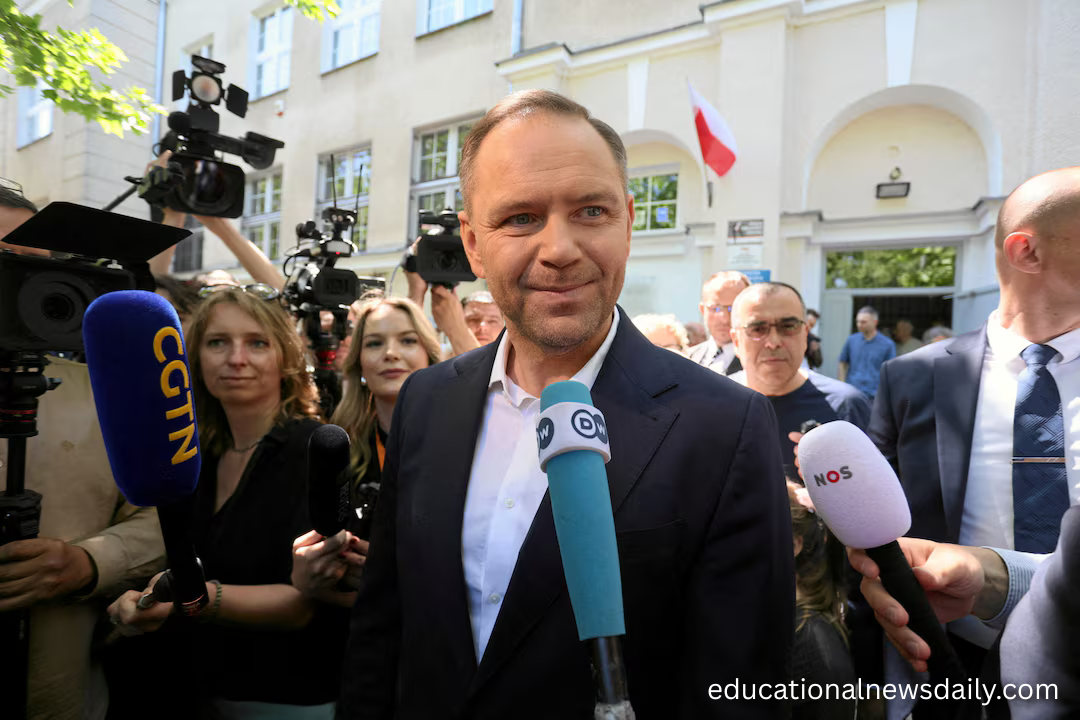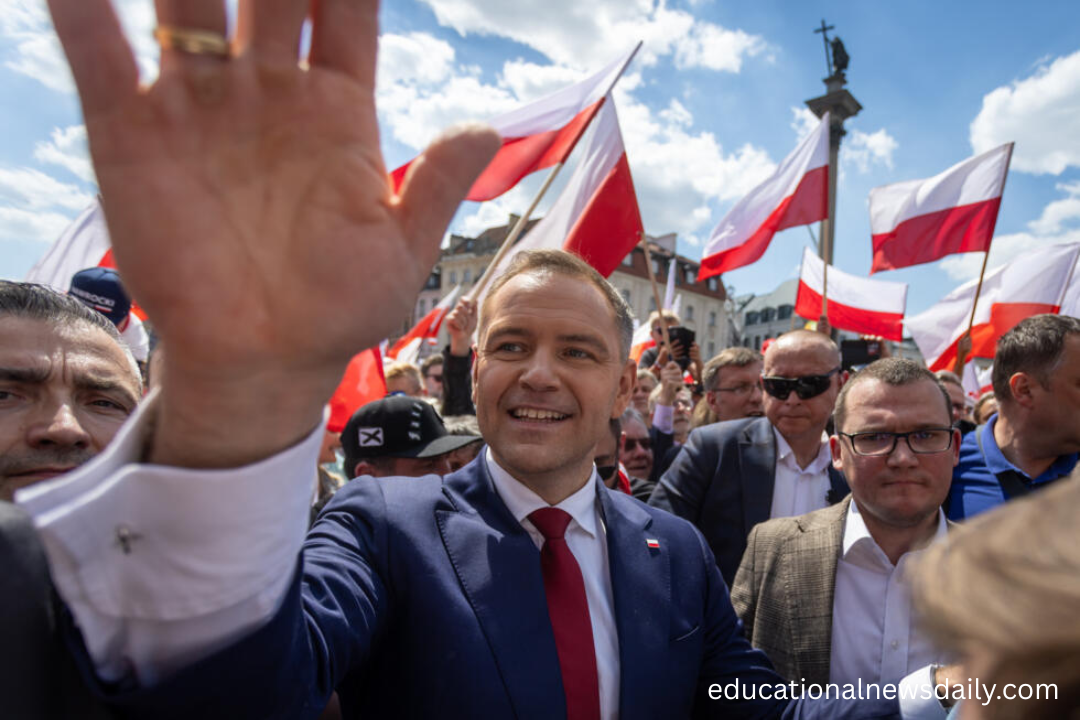Polish Eurosceptic Nawrocki’s victory in the recent presidential election marks a significant turning point in Poland’s political landscape. Known for his critical stance towards the European Union, Nawrocki’s win reflects growing Euroscepticism among Polish voters. This article examines the implications of Polish Eurosceptic Nawrocki’s election victory, analyzing his political platform, voter base, and what his presidency could mean for Poland’s future relationship with the European Union.
Profile of Polish Eurosceptic Nawrocki
Polish Eurosceptic Nawrocki, a former member of the national parliament, has long advocated for greater Polish sovereignty and a reassessment of Poland’s role within the European Union. His campaign focused on issues such as limiting Brussels’ influence over national policies, protecting Poland’s cultural identity, and promoting economic independence. These positions resonated with a considerable portion of the electorate, who were frustrated by EU mandates and perceived infringements on national decision-making.
Campaign Strategies That Led to Victory
Polish Eurosceptic Nawrocki’s campaign capitalized on nationalist sentiments and concerns about sovereignty. His messaging emphasized the need to reclaim control over immigration policies, judiciary reforms, and economic regulations. Through social media outreach and grassroots mobilization, Nawrocki successfully engaged younger voters and rural communities, key demographics in Poland that feel underrepresented by mainstream pro-EU parties.
Voter Base and Regional Support
Analysis of the election results reveals that Polish Eurosceptic Nawrocki performed exceptionally well in eastern and southern Poland, regions that have historically leaned towards conservative and nationalist politics. His appeal extended to working-class voters and small business owners, who were wary of EU regulations that they perceived as burdensome. This regional support base played a crucial role in securing Nawrocki’s victory in the presidential election.
Implications for Poland-EU Relations
Polish Eurosceptic Nawrocki’s presidency is likely to shift the dynamics of Poland’s relationship with the European Union. His campaign promises include revisiting existing agreements and resisting policies perceived as overreach by the European Union. This could lead to heightened tensions within the EU and influence Poland’s participation in future EU initiatives. Analysts warn that Polish Eurosceptic Nawrocki’s tenure might usher in a more isolationist stance.
Economic Policies Under Polish Eurosceptic Nawrocki
Despite his critical views on the EU, Polish Eurosceptic Nawrocki has pledged to maintain economic stability and growth. His platform advocates for supporting local industries and protecting Polish businesses from unfair foreign competition. However, some economists express concerns that distancing Poland from EU frameworks could impact foreign investment and trade, which are vital to the country’s economy.
Social and Cultural Agenda

Polish Eurosceptic Nawrocki’s agenda includes strengthening traditional values and cultural heritage. His administration plans to promote policies aimed at preserving Poland’s national identity and resisting what he describes as cultural homogenization driven by globalization and EU policies. This approach appeals to conservative voters who fear losing their artistic roots in an increasingly interconnected Europe.
International Reactions and Future Outlook
The international community has reacted cautiously to the election of Polish Eurosceptic Nawrocki. EU leaders have expressed hopes for constructive dialogue but remain wary of potential policy clashes. Observers are keenly watching how Nawrocki’s government will navigate Poland’s obligations within the EU while addressing domestic demands for sovereignty.
Frequently Asked Questions (FAQ’s)
Who is Polish Eurosceptic Nawrocki?
Polish Eurosceptic Nawrocki is a political figure known for his critical stance toward the European Union, advocating for greater national sovereignty and less EU influence in Poland.
What were the main issues in Polish Eurosceptic Nawrocki’s presidential campaign?
His campaign focused on limiting EU control over Polish policies, protecting cultural identity, reforming immigration and judiciary laws, and supporting local businesses.
Which regions in Poland supported Polish Eurosceptic Nawrocki the most?
Nawrocki received strong support from eastern and southern Poland, areas traditionally inclined toward conservative and nationalist politics.
How might Polish Eurosceptic Nawrocki’s presidency affect Poland’s relationship with the EU?
His presidency could lead to increased tensions with the EU, as he aims to push back against policies he views as overreaching and promote a more independent national agenda.
What are Polish Eurosceptic Nawrocki’s economic plans?
He plans to support local industries and protect Polish businesses, though some experts warn distancing from the EU might impact trade and foreign investment.
How does Polish Eurosceptic Nawrocki view Polish culture and identity?
Nawrocki emphasizes the preservation of Poland’s traditional values and cultural heritage, resisting the cultural homogenization associated with globalization and EU policies.
What has been the international reaction to Polish Eurosceptic Nawrocki’s election?
International leaders, especially within the EU, have expressed cautious optimism but remain concerned about potential policy conflicts.
What challenges will Polish Eurosceptic Nawrocki face as president?
Balancing domestic demands for sovereignty with Poland’s obligations to the EU and maintaining economic stability amid possible tensions will be key challenges.
Conclusion
Polish Eurosceptic Nawrocki’s election signals a shift towards nationalism and skepticism of supranational institutions. His presidency presents both opportunities and challenges for Poland as it navigates a balance between domestic priorities and international commitments. The coming years will be critical in defining Poland’s path and its role on the European stage.

